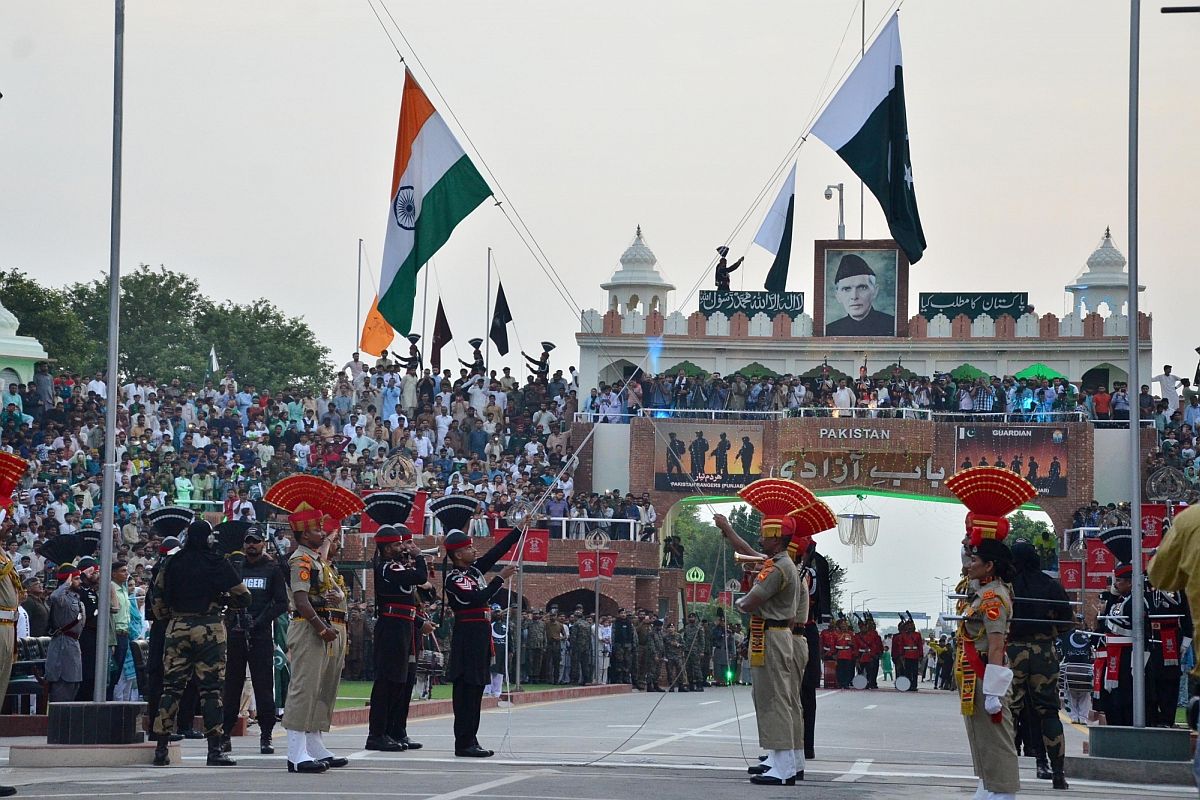India and Pakistan are set to face off at the UN Human Rights Council (UNHRC) today.
After failing to garner support even from its staunch allies on Jammu and Kashmir following the abrogation of Article 370 by India, Pakistan is now preparing to misuse this key UN platform to rake up the issue.
Advertisement
Leading the Pakistani charge will be its Foreign Minister Shah Mehmood Qureshi who is expected to speak on Tuesday. The Indian delegation at the meet will be led by Vijay Thakur Singh, Secretary (East) in the External Affairs Ministry. She will be assisted by Indian High Commissioner to Pakistan Ajay Bisaria, who was expelled by Islamabad following the developments in J&K, and other officials. Bisaria has been in Geneva for the past few days, meeting representatives of various countries to foil any Pakistani design on Kashmir.
Pakistan has been desperate since the Centre decided to abolish the special status of Jammu and Kashmir granted under Article 370 of the Constitution and bifurcated the state on August 5.
India is all set to thwart attempts by Pakistan to internationalise the Kashmir issue.
India is expected to assert its well-articulated position that restrictions were imposed to save human lives and cite the record that not a single civilian has died there in the last one month in any police action.
India is also likely to highlight how cross-border terrorism sponsored and nurtured by Pakistan has caused bloodshed and hampered development in Jammu and Kashmir.
The UN Human Rights Council session which began on Monday will continue for two weeks until September 27.
Earlier on Monday, immediately after UN High Commissioner for Human Rights, Michelle Bachelet expressed “deep concerns” over the restrictions imposed in Jammu and Kashmir, Pakistan Prime Minister Imran Khan welcomed her statement and demanded to immediately set up a probe commission to investigate alleged human rights abuses in the Valley.
In a series of tweets, Imran Khan said: “I especially welcome the statement by the UNHCHR in Geneva today. I call upon the UN Human Rights Council to immediately set up the indep Investigation commission to probe human rights abuses in IOJK as recommended by the UNHCR’s two reports on Kashmir. The time is to act now (sic).”
“I welcome the growing concern & demands by the int community, global ldrs, UNSG & UNHCHR, for India to lift its 6-week long seige of IOJK. The Int community must not remain indifferent to the massive human rights abuses by Occupation Indian forces under cover of a brutal siege (sic),” read another tweet.
In her opening statement at the 42nd session of the Human Rights Council in Geneva, Bachelet said she was deeply concerned with “recent actions by the Government of India on the human rights of Kashmiris, including restrictions on Internet communications and peaceful assembly, and the detention of local political leaders and activists”.
She also appealed particularly to India to ease the current lockdowns or curfews, to ensure people’s access to basic services and that all due process rights are respected for those who have been detained.
She further stressed that it is important that the people of Kashmir are consulted and engaged in any decision-making processes that have an impact on their future.
Jammu and Kashmir was put under virtual curfew on 5 August when the Modi government scrapped the Article 370 and split the state into two union territories.
Michelle Bachelet included India in her specific reference to over 35 countries and mentioned Pakistan only in reference to Kashmir, but made no reference to the human rights situation in Pakistan occupied Kashmir, Balochistan or Gilgit-Baltistan.
After the remarks made by the UN rights chief, India said that Ninety-two per cent of J-K remains free of restrictions since the revocation of Article 370.











